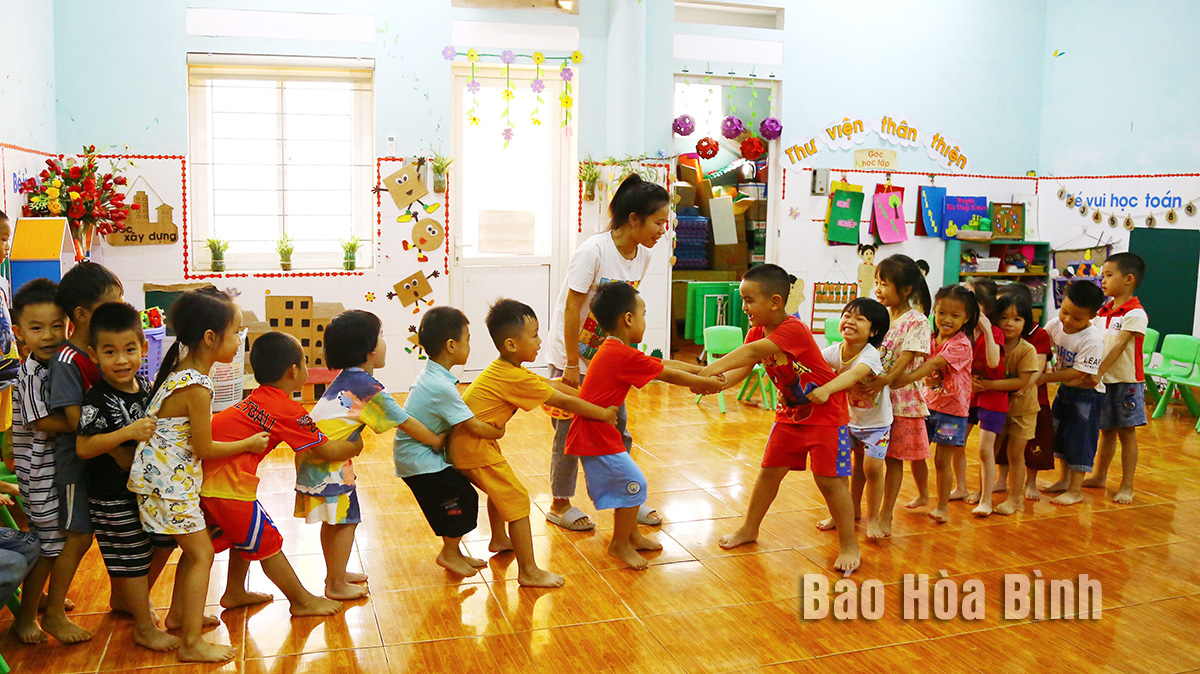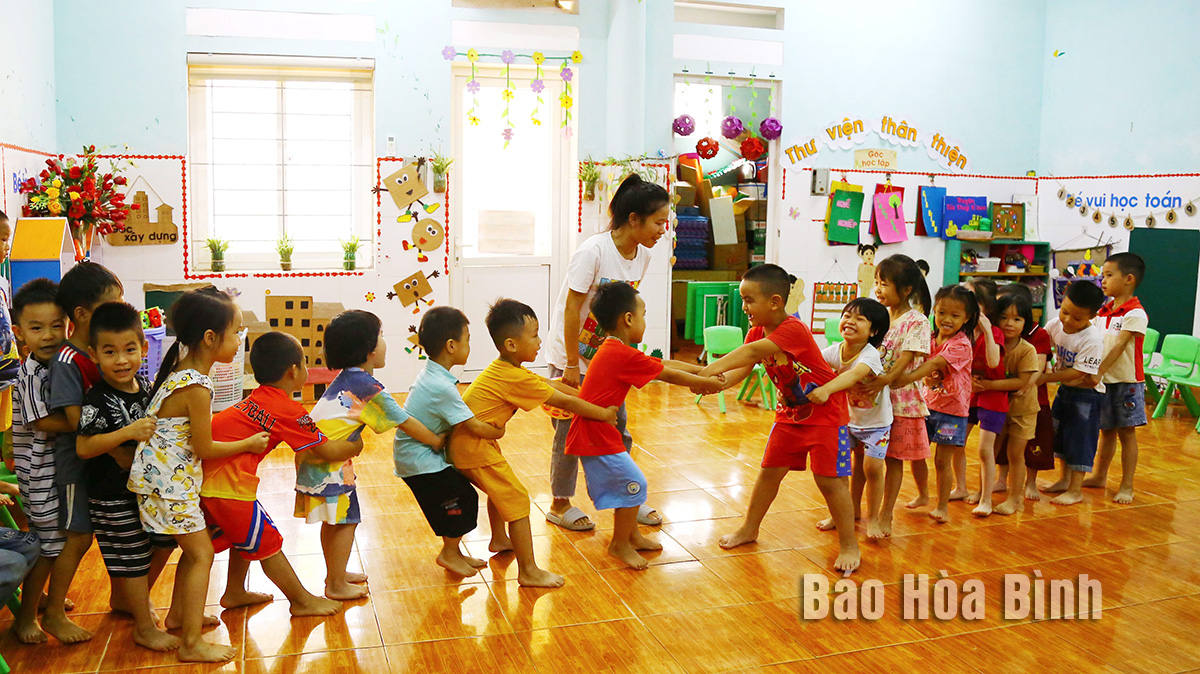
(HBO) - The Vietnamese Party and State always consider education and training as a top national policy, and investing in education as investing in development. Thoroughly grasping the stances, guidelines and policies of the Party and State, over the past years, Hoa Binh province has taken concerted measures on education and training development, with attention paid to well implementing the 11th Party Central Committee’s Resolution No. 29-NQ/TW, dated November 4, 2013, on fundamental and comprehensive innovation in education and training to meet the requirements of industrialisation and modernisation in the context of a socialist-oriented market economy and international integration.

Kindergarten in
Hoa Binh commune, Hoa Binh city, creates a cultural environment for children to
develop comprehensively.
The quality of education universalisation and mass education
is improved year after year. Many active teaching methods and teaching models
in accordance with the 2018 general education programme are implemented,
gradually shifting the educational process from mainly equipping knowledge to
comprehensively developing learners' abilities and qualities.
At a recent conference to summarise the 10 years
implementing Resolution 29-NQ/TW organised by the province, Nguyen Phi Long,
alternate member of the Party Central Committee, Secretary of the provincial
Party Committee, ordered the good implementation of mechanisms and policies for
education and training development.
He stressed the need to pay attention to improving the
quality of teachers and educational administrators by fostering their political
and ethical qualities, and developing their teaching capacity in accordance
with requirements of education and training innovation, building plans to
develop non-public preschools and high schools and those meeting national
standards for the 2023-2030 period, and implementing mechanisms and policies to
attract contributions and sponsorship from individuals, organisations, and
businesses at home and abroad to improve the quality of education.
It is also necessary to ensure equal treatment and create a
fair and transparent competitive environment so that learners at non-public
educational institutions can access educational opportunities and benefit from
the Party and State's educational development policies, innovate methods and
diversify forms of teaching in the direction of developing students' qualities
and abilities, and reform the management of teaching activities, he added.
The emulation movement "Hoa Binh joining hands to build new-style rural areas” has been widely spreading, becoming a driving force that motivates the localities to renew rural landscapes and improve the material and spiritual lives of the residents. In this movement, the people play a central role-both as the main implementers and direct beneficiaries of its outcomes.
In response to the global digital revolution, Hoa Binh Newspaper is transforming itself into a modern and multi-platform media hub, blending cutting-edge technology with a restructured newsroom and a new generation of tech-savvy journalists.
Hoa Binh province’s Association of the Elderly recently held a conference to review the project on expanding the inter-generation self-help club model until 2025.
In a move to implement Resolution No. 57-NQ/TW, issued on December 22, 2024 by the Politburo, which targets breakthroughs in science-technology development, innovation, and digital transformation, the Hoa Binh provincial Department of Health has issued a plan to roll out the "Digital Literacy for All” campaign within the local health sector.
An Nghia Commune (Lạc Sơn District) is one of the communes that achieved the tha standard of the national new rural area in 2018. Entering a new development phase, the commune is now trying to meet the criteria for the advanced new rural development. With the strong political will and the public consensus, the commune is gradually overcoming the challenges to reach this goal, aiming for the sustainable development.



